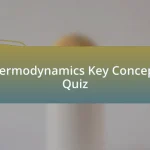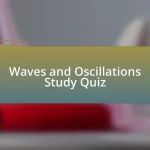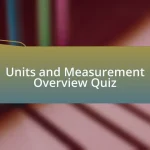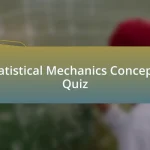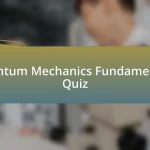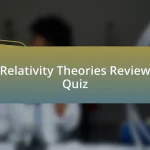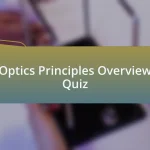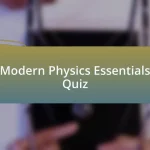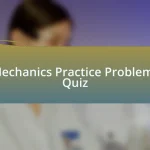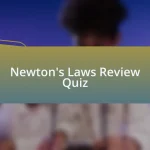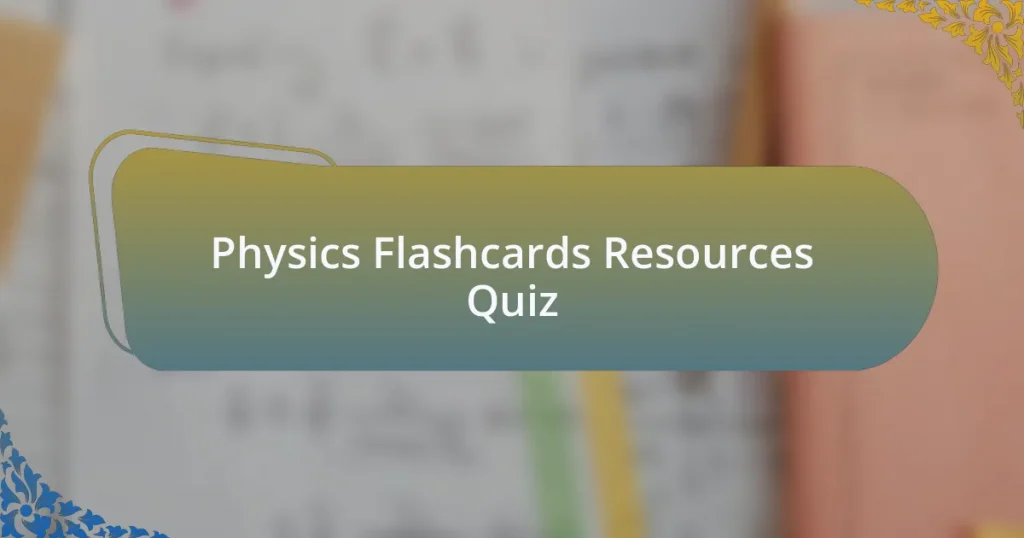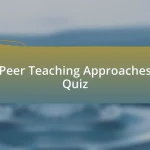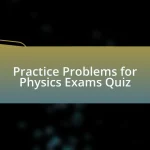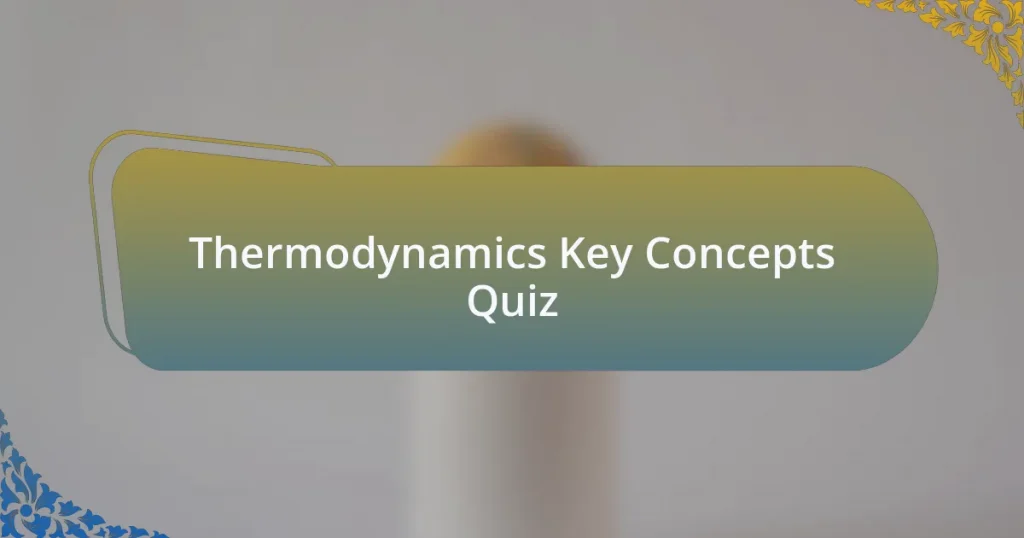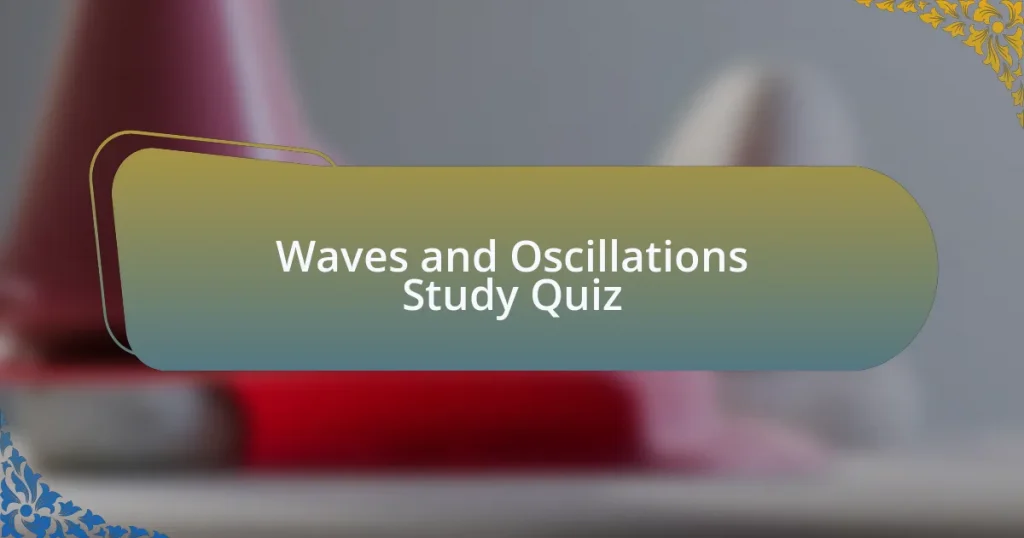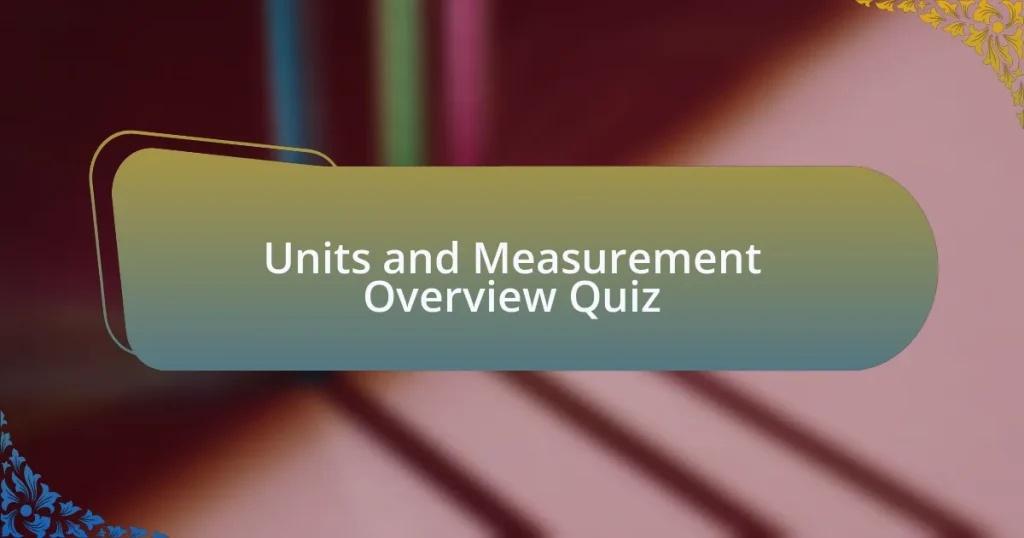Start of Physics Flashcards Resources Quiz
1. What is the purpose of using flashcards in physics study?
- To replace textbooks and comprehensive notes completely.
- To help students quiz themselves and reinforce their understanding of physics concepts.
- To provide a visual distraction during study breaks.
- To serve as decorative items for the study room.
2. Where can you find free college physics flashcards?
- Coursera
- Varsity Tutors
- Khan Academy
- Quizlet
3. What specific concepts are covered by Varsity Tutors` college physics flashcards?
- Kinematics, thermodynamics, plasma physics, and dark matter.
- Magnetic resonance, superconductivity, chaos theory, and cosmic microwave background.
- Quantum entanglement, wave-particle duality, relativity, and string theory.
- Centripetal acceleration, gravitational acceleration, mass, velocity, magnetic fields, force of friction, power generation, and more.
4. How can you create your own physics flashcards using Varsity Tutors` Learning Tools?
- By attending a workshop on flashcard creation and following their guidelines.
- By downloading a third-party app and importing flashcards from other users.
- By selecting pre-made templates and modifying existing flashcards for personal use.
- By clicking on the “Create Tests & Flashcards” icon and then entering questions and answers from your textbook or past quizzes.
5. What is the benefit of using flashcards during unexpected downtime?
- It complicates the review process for students.
- It is only useful for long study sessions.
- It requires a lot of preparation before use.
- It allows for quick study sessions even in short breaks.
6. What subjects are covered by the CWRU Physics flashcards?
- Statistical mechanics, atomic theory, and kinematics.
- Solid state physics, wave mechanics, and optics.
- Classical mechanics, electromagnetic theory, and thermodynamics.
- Quantum entanglement, black hole physics, and thermodynamics.
7. How many cards are in the CWRU Physics flashcard set?
- 100 cards
- 300 cards
- Over 250 cards
- 150 cards
8. What is the primary focus of the CWRU Physics flashcards?
- To summarize high school level physics concepts for beginners.
- To assist in learning about historical physics discoveries and figures.
- To offer practice questions for general science tests unrelated to physics.
- To help students prepare for the physics advanced GRE by providing background material and formulas.
9. What is the format of the CWRU Physics flashcards?
- Definitions on one side and diagrams on the other.
- Formulas only on one side and examples on the other.
- Questions on one side and answers on the other.
- Problems on one side and solutions on the other.
10. How many cards are dedicated to classical mechanics in the CWRU Physics flashcard set?
- 20 cards
- 25 cards
- 40 cards
- 33 cards
11. What is the metric unit of power in the CWRU Physics flashcards?
- Volt
- Ampere
- Joule
- Watt
12. What is the contribution of Copernicus to astronomy, as mentioned in the flashcards?
- The Moon revolves around the Earth only.
- Stars are significant due to their brightness alone.
- The Earth is a flat disc in space.
- The Sun is the center of the solar system, not the Earth.
13. What provides the centripetal force needed to allow a car to turn a corner, according to the flashcards?
- Friction
- Inertia
- Gravity
- Acceleration
14. What is the American unit of power, as mentioned in the flashcards?
- Volt
- Joule
- Horsepower
- Newton
15. What is the ability to do work, as defined by the flashcards?
- Power
- Energy
- Work
- Force
16. For an object to be stable, where must its center of mass remain, according to the flashcards?
- Below
- Base
- Above
- Outside
17. What keeps the planets in their orbits, as mentioned in the flashcards?
- Friction
- Centripetal force
- Gravity
- Electromagnetism
18. If you double your speed, how many times more distance do you need to stop, according to the flashcards?
- Six times
- Two times
- Four times
- Eight times
19. What is Kepler`s mother tried for, as mentioned in the flashcards?
- Murder
- Witchcraft
- Adultery
- Theft
20. What is the subject list and approximate percentage of problems devoted to each subject in the GRE, as mentioned in the flashcards?
- Classical mechanics = 15%, electromagnetism = 20%, quantum mechanics = 25%, atomic physics = 5%, thermodynamics = 10%, optics = 12%, relativity = 7%, lab methods = 3%, other = 3%.
- Classical mechanics = 25%, electromagnetism = 25%, quantum mechanics = 10%, atomic physics = 5%, thermodynamics = 5%, optics = 15%, relativity = 5%, lab methods = 5%, other = 5%.
- Classical mechanics = 30%, electromagnetism = 10%, quantum mechanics = 5%, atomic physics = 15%, thermodynamics = 10%, optics = 8%, relativity = 4%, lab methods = 1%, other = 17%.
- Classical mechanics = 20%, electromagnetism = 18%, quantum mechanics = 13%, atomic physics = 10%, thermodynamics and statistical mechanics = 10%, optics and wave phenomena = 8%, special relativity = 6%, laboratory methods = 6%, specialized topics = 9%.
21. What is the number of cards for a detailed list of subjects in the CWRU Physics flashcard set?
- 300 cards
- 200 cards
- 150 cards
- Over 250 cards
22. What is the purpose of the CWRU Physics flashcards?
- To help students remember many definitions, formulas, and phenomena quickly.
- To confuse students with complex theories and ideas.
- To provide students with a list of physics textbooks.
- To replace traditional classroom teaching.
23. How many problems are there in total for the GRE, as mentioned in the flashcards?
- 701 problems
- 650 problems
- 800 problems
- 500 problems
24. What is the advice given to students about guessing in the pGRE, as mentioned in the flashcards?
- Guessing is beneficial and should be done smartly by ruling out obviously wrong answers.
- Always leave questions unanswered to avoid penalties.
- Guessing can negatively impact your score overall.
- Only guess if you are completely unsure about the question.
25. What is the format of the AP Physics 1 flashcards?
- Questions on one side and answers on the other.
- Answers on one side and explanations on the other.
- Scenarios on one side and diagrams on the other.
- Definitions on one side and examples on the other.
26. What specific topics are covered by the AP Physics 1 flashcards?
- Electricity, waves, Ohm`s law, Coulomb`s law, the Doppler Effect, and sound waves.
- Classical mechanics, friction, heat transfer, and tides.
- Astrophysics, thermodynamics, and nuclear reactions.
- Relativity, quantum physics, and chemical bonding.
27. How can you create your own AP Physics 1 flashcards using Varsity Tutors` Learning Tools?
- By printing flashcards from a physics textbook and distributing them to friends.
- By downloading a physics app and completing pre-made flashcards.
- By clicking on the “Create Tests & Flashcards” icon and then entering your own physics-based questions and answers.
- By following a YouTube tutorial on physics topics and memorizing the content.
28. What is the benefit of using flashcards during unexpected downtime, as mentioned in the flashcards?
- It provides a deep understanding of complex theories only.
- It requires extensive preparation and prior knowledge.
- It is mainly used for group discussions and projects.
- It allows for quick study sessions even in short breaks.
29. What subjects are covered by the AP Physics 1 flashcards, as mentioned in the flashcards?
- Newtonian mechanics, like angular momentum, centripetal force, harmonic motion, pendulums, forces, friction, kinetic energy, and more important physics concepts.
- Optics, light refraction, diffraction, and color theory.
- Thermodynamics, statistical mechanics, heat transfer, and kinetic theory.
- Quantum mechanics, wave functions, particle physics, and relativity concepts.
30. How can you use the AP Physics 1 flashcards to prepare for tests?
- By creating a deck of flashcards that contains all the questions that appeared on your AP Physics 1 tests during the school year.
- By relying solely on group studies without individual practice.
- By focusing only on online videos without written practice.
- By reading through all your old tests without any additional material.
Quiz Completed Successfully!
Congratulations on completing the quiz on Physics Flashcards Resources! You’ve taken a valuable step towards enhancing your understanding of physics. During this quiz, you likely reinforced key concepts, improved your recall, and discovered new strategies for effective study habits. These insights can greatly aid you in your test preparation efforts.
Through your engagement with this quiz, you may have learned about different types of flashcards, how to create effective study aids, and the benefits of active recall. These tools are essential for mastering complex physics topics. Remember, consistent practice and revision are crucial for retaining information and performing well on your exams.
We invite you to check out the next section on this page, which offers in-depth information about Physics Flashcards Resources. This content will help expand your knowledge further and provide you with additional techniques for studying. Dive in and explore more; your journey towards mastering physics continues here!
Physics Flashcards Resources
Understanding Physics Flashcards for Test Preparation
Physics flashcards are study tools that help students memorize key concepts, formulas, and vocabulary. Each card typically contains a question or term on one side and the corresponding answer or definition on the other. This method promotes active recall, which enhances memory retention. Research shows that active recall techniques significantly improve learning outcomes, making flashcards effective for physics test preparation.
Types of Physics Flashcard Resources Available
There are several types of physics flashcard resources. These include physical flashcards, digital apps, and online platforms. Physical flashcards allow tactile learning, while digital options provide interactive features. Platforms like Quizlet and Anki enable users to access pre-made decks or create personalized ones. Each type caters to different learning preferences, improving engagement and understanding of physics concepts.
How to Create Effective Physics Flashcards
Creating effective physics flashcards involves focusing on clarity and conciseness. Each flashcard should address a single concept, formula, or problem type. Use clear language and relevant images if applicable. Including examples enhances understanding. Studies indicate that flashcard self-testing leads to better performance on exams, confirming the value of personalized flashcard creation.
Utilizing Physics Flashcards for Different Learning Styles
Physics flashcards can be tailored to accommodate various learning styles, such as visual, auditory, and kinesthetic. Visual learners benefit from diagrams or colors on flashcards. Auditory learners might read flashcards aloud or use audio flashcards. Kinesthetic learners can engage in hands-on activities related to the flashcards. Adjusting flashcard formats can optimize study effectiveness for diverse students.
Assessing the Effectiveness of Flashcard Study Sessions
Assessing the effectiveness of flashcard study sessions is crucial for success in physics test preparation. Regular self-testing using flashcards can reveal knowledge gaps. Tracking the frequency of correctly recalled terms helps gauge understanding. Studies indicate that spaced repetition enhances memory retention, supporting the use of flashcards as a continual study method for improved test performance.
What are Physics Flashcards?
Physics flashcards are educational tools designed to aid in the memorization of key physics concepts, formulas, and terminology. They typically contain a question or term on one side and the answer or definition on the other. This method of active recall supports better retention of information, making it an effective study strategy for physics test preparation.
How can Physics Flashcards be used for test preparation?
Physics flashcards can be used by reviewing one card at a time, attempting to recall the answer before flipping it to check. This enhances memory retention through active engagement. Additionally, students can group flashcards by topic, allowing for targeted study sessions that focus on weaker areas, thus maximizing study efficiency.
Where can I find quality Physics Flashcards?
Quality physics flashcards can be found on educational websites such as Quizlet and Cram. These platforms offer user-generated sets covering various topics in physics. Many institutions also provide printed flashcards or downloadable PDFs that cater specifically to course content, ensuring relevancy for test preparation.
When is the best time to use Physics Flashcards?
The best time to use physics flashcards is during the weeks leading up to an exam. Incorporating them into a regular study routine helps reinforce concepts over time. Additionally, flashcards can be effective for quick review sessions right before a test, helping to refresh critical information.
Who can benefit from using Physics Flashcards?
High school and college students studying physics can benefit significantly from using flashcards. Those preparing for standardized tests like the SAT Physics Subject Test or AP Physics exam will find flashcards particularly useful. They can also benefit educators looking for effective teaching aids to reinforce classroom learning.
